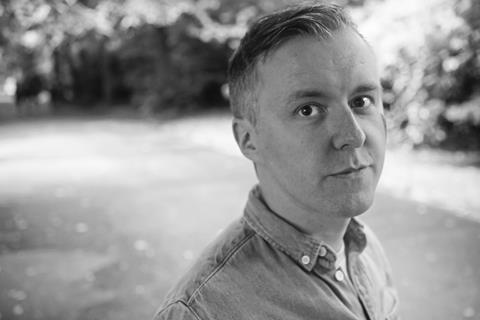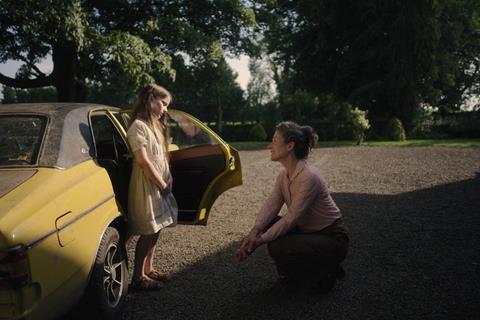
Colm Bairéad’s The Quiet Girl (An Cailín Ciúin) is the latest Irish-language film to garner international acclaim on the festival circuit, following the strong critical and commercial reception for Tom Sullivan’s Famine-set Arracht last year.
The Quiet Girl premiered at the Berlinale last month, winning the main prize in the Generation Kplus section, before opening the Dublin International Film Festival on February 23.
It has been acquired for UK and Ireland release by Irish outfit Break Out Pictures and is handled internationally by Rosa Bosch.
The film is a labour of love from writer-director Bairéad, who knew he had found his first feature on reading Claire Keegan’s short story ‘Foster’, from which it was adapted.
“It was extraordinary - I was reading it, and the film was just sort of constructing itself in my mind,” says Bairéad. “[Keegan’s] style lends itself quite readily to screen adaptation. Her prose is so precise, but at the same time, leaves a lot of space for the reader to fill in the gaps.”
The Quiet Girl. explores themes of family, neglect and loss in 1980s Ireland. It is told through the eyes of a nine-year-old girl called Cáit from an overcrowded and dysfunctional home, who is sent to live with relatives for the summer. The lead is played by 12-year-old Catherine Clinch, who had never acted to camera before.
The child’s perspective is “partly born of the desire to give a child the central position in the narrative, and particularly a child from our past,” Bairéad observes. “That was part of the impulse, to give a character like that a voice.”
Produced by Cleona Ní Chrualaoi for Inscéal, a production company she established with Bairéad, The Quiet Girl was financed through the Cine 4 production and development funding initiative of Irish-language TV broadcaster TG4, Screen Ireland and the Broadcasting Authority of Ireland. Introduced in 2017, it backs two production and five development projects annually.
Bairéad credits the scheme with being a major factor in the growth in filmmaking in the Irish language. ”In the space of four years the filmography of Irish-language cinema has tripled,” he points out.
Irish-language

Raised in a bilingual household, all of the filmmaker’s previous work had been in Irish and when he came across Keegan’s story, he had been actively seeking a project for his first full-length drama feature. “All of my short films and a docudrama that I did were in the Irish language. It just felt like a natural progression.”
Bairéad had cut his teeth as a shorts filmmaker through other schemes that TG4 used to run with the now defunct Filmbase. It marked the beginning of a relationship with the channel, and commissioning editors there would put him in contact with producers for TV work. He went on to direct the feature-length docudrama, Murdair Mhám Trasna, which recounted the slaying of a family in the west of Ireland in 1882.
With cinematographer and Screen Star of Tomorrow Kate McCullough, who also workd on Arracht, and a strong cast including Carrie Crowley and Andrew Bennett on board, the filmmakers knew finding their Cáit was crucial to the success of the project. Open auditions were held in Munster, in the south of the country
“Then Covid arrived,” said Bairéad. “We were putting up calls for self tapes, and we widened the net. We got a self tape in from a young girl called Catherine Clinch. It was Cleona who saw it first, and she just rang me and said: ‘Colm you need to watch this. I think we found our Cáit’.
“She just had that stillness and this dignity to her and this emotional intelligence that’s sort of palpable. The way she was willing to allow the camera to sort of witness her felt really remarkable. She had never acted in front of a camera before.”
Locations research led to the discovery of the film’s remote and very cinematic farmhouse where the girl was to spend her summer. The property was located in Co Meath in the east of Ireland, within commuting distance of the capital, Dublin. Many of its original features remained intact.
Career moves
Bairéad cites filmmakers Lynne Ramsay and Kelly Reichardt among those he most admires. “Reichardt is extraordinary in what she can achieve by not manipulating the audience. Her film Certain Women is just one of the most emotional experiences. It’s so quiet, it’s so subtly achieved. That to me is the kind of filmmaking that really inspires me.”
He is now at the early stages of development with his next feature called Broken Hands, a drama about a faith healer set in 1970s Ireland.
“I’d love to stay in the world of feature filmmaking,” Bairéad says of the kind of career he wold like to forge. “There’s something about the feature film in terms of structure and theme. I’m also quite interested in the Ireland that I was born into. I’m drawn to stories from the past or from the recent past.”
The Dublin International Film Festival is running until March 6.







![The Brightest SunScreen[Courtesy HKIFF]](https://d1nslcd7m2225b.cloudfront.net/Pictures/274x183/3/5/0/1448350_thebrightestsunscreencourtesyhkiff_312678.jpg)

















No comments yet